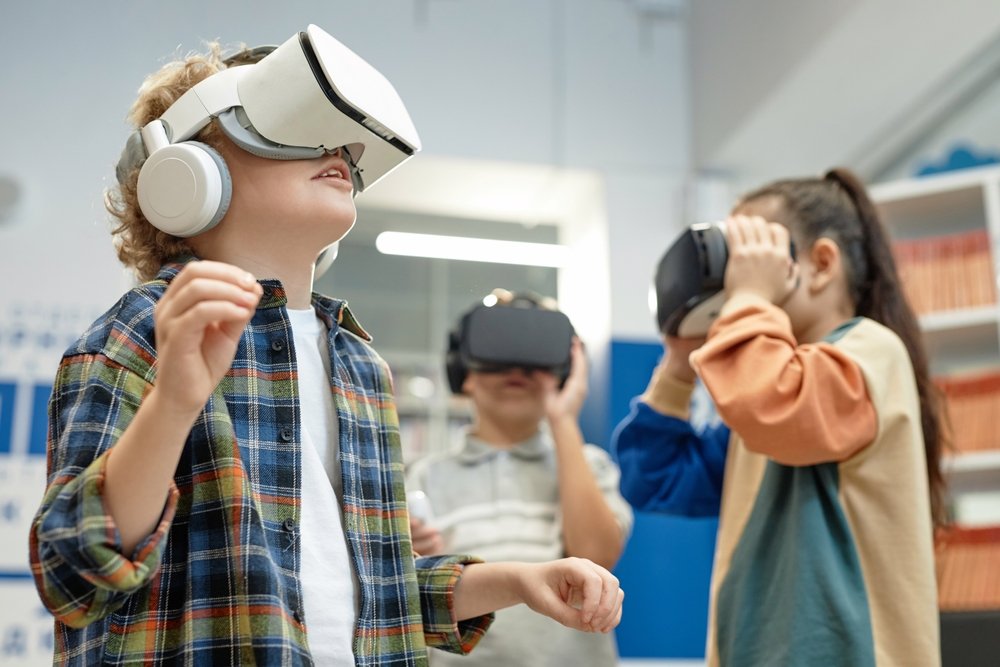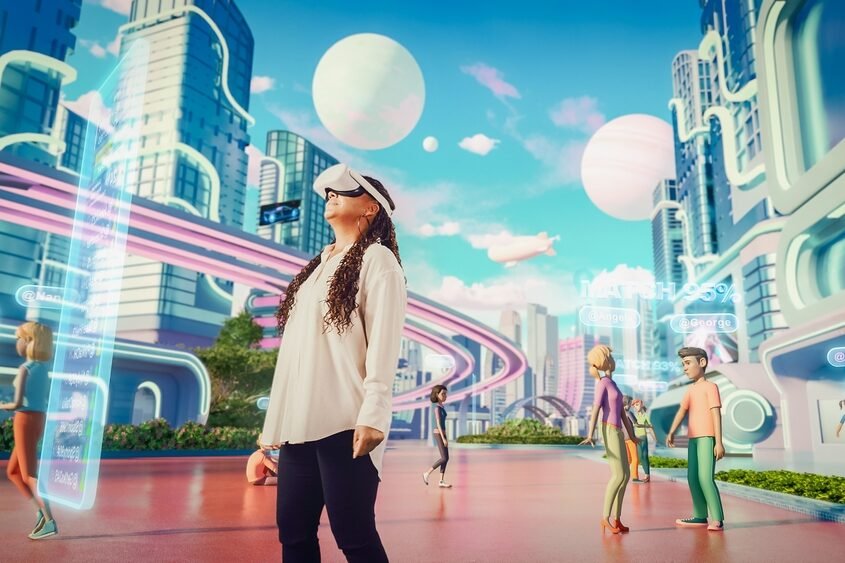VR Can Trick the Brain into Thinking It’s Real

One of the most remarkable things about virtual reality is how easily the brain accepts it as truth. When we put on a VR headset, our senses are immersed in a fully simulated environment, one that can mirror real-life experiences with stunning detail. From your heartbeat to your reflexes, your body reacts to VR as if it’s really happening. That’s not just entertainment, it’s neurology in action.
This level of immersion means that over time, repeated exposure to virtual experiences can start to blend with actual memories. Studies show that people can recall VR sessions as vividly as real-life events and sometimes with more emotional impact. The brain doesn’t always distinguish between physical and digital memory, especially if emotions were strong during the experience. That opens the door for powerful therapeutic tools but also raises red flags about just how easy it might be to rewrite, reshape, or replace what we believe really happened.
Your Brain Might Start Swapping Virtual Memories for Real Ones
As VR experiences grow more emotionally intense and immersive, scientists are seeing a surprising side effect: the brain may start substituting them for real memories. It’s not that you forget what actually happened. It’s that your recollection of events can become distorted or rewritten entirely by what you experienced in the digital world.
This phenomenon, called “false memory implantation,” has been observed even in simple simulations. Imagine visiting a virtual childhood home that looks and feels exactly like the real one except certain details are changed. Your brain might fill in those gaps and adopt them as fact. Over time, this reshuffling could subtly affect your personal history, shaping how you remember key life events. In extreme cases, people may begin to confuse their virtual experiences with actual ones. While this might seem harmless on the surface, when it comes to trauma, relationships, or even legal testimony, the implications are enormous.
VR Therapy Has Promise But It’s Playing with Fire
Virtual reality is already being used in therapeutic settings, from treating PTSD to managing phobias. By allowing people to confront fears in a safe, controlled space, VR helps patients build resilience and reframe painful experiences. For some, it’s been life-changing. But there’s a thin line between healing a memory and replacing it entirely.
When VR is used to overwrite or “soften” real-life trauma, there’s a risk that patients could lose important emotional context. Stripping pain from a memory may ease suffering, but it also might remove lessons, coping skills, or emotional depth that’s key to personal growth. Therapists are now walking a tightrope balancing the benefits of immersive healing with the danger of rewriting reality. If virtual experiences are used too aggressively or too frequently, they may not just change how we feel about the past they might change the past itself in our minds.
Children Are Especially Vulnerable to Memory Confusion

The developing brain is highly adaptable — which makes it particularly susceptible to the effects of virtual reality. Kids who engage with VR from a young age may grow up with a blurred line between digital and physical experience. Their ability to distinguish between a memory formed in the real world and one born in a headset could be weaker than adults’.
This isn’t just about gaming or fun. If children routinely immerse themselves in VR scenarios, social, educational, or even emotional ones, their long-term sense of memory could become tangled. Some researchers are already warning that overexposure to hyper-realistic virtual content could lead to false memories, behavioral changes, or difficulties with self-identity. As VR becomes more mainstream in classrooms and entertainment, parents and educators will need to consider not just screen time, but memory time. What our kids remember might not be what actually happened and that has long-term consequences for development, learning, and emotional health.
Your Identity Could Start to Shift with Your Memories
Who we are is deeply rooted in what we remember. Our relationships, beliefs, habits — they all tie back to moments that shaped us. But what if those moments start getting rewritten by virtual experiences? As VR becomes more emotionally immersive, it’s possible for users to internalize new memories that influence how they see themselves.
Maybe you relive a heroic rescue in a war simulation, or a tender childhood moment in a virtual family experience. These might feel real enough to trigger emotional shifts, pride, grief, nostalgia even if they never actually happened. Over time, these feelings might shape your self-concept, changing how you act or what you believe. It’s not just about confusing fact and fiction. It’s about slowly editing the narrative of your life until you’re not sure which chapters you actually lived. The risk isn’t just that we forget our real past, it’s that we might start building a new one that only ever existed inside a machine.
VR Could Be Used to Manipulate Public Memory
One of the more chilling possibilities of memory-altering VR isn’t individual, but societal. As virtual environments become more immersive and believable, they can be used to create collective experiences — ones that never actually occurred, but feel real enough to shape public opinion. Governments, corporations, or interest groups could theoretically use these tools to influence how people remember major events, political conflicts, or even cultural history.
It might start subtly, with educational VR reenactments or national museum exhibits. But if the details in those simulations are tweaked whether for bias, propaganda, or even entertainment they could influence a generation’s understanding of the past. Over time, shared virtual experiences might become stronger than textbooks or traditional media. The fear is not just about misinformation, but about memory manipulation on a mass scale. Once VR becomes a source of truth, whoever controls the simulation could reshape what millions believe to be reality.
Long-Term Use May Disrupt Natural Memory Formation
Our brains have evolved to process the world through sensory experiences, social feedback, and physical interaction. But VR disrupts that process. It creates deeply sensory events in entirely artificial environments, ones that our brains accept as authentic even though they lack real-world grounding. The more often we engage in these simulations, the more our memory system adapts to them for better or worse.
There’s a growing concern that regular VR use might slowly alter how our brains form and store memories overall. Users may struggle to recall whether something happened in real life or in a virtual session. They might remember events more vividly than they should, or forget key details from their physical lives. While the science is still evolving, some neuroscientists warn that excessive VR engagement could disrupt sleep, concentration, and long-term memory health not just because of screen time, but because the brain is spending more time filing away artificial experiences.
Emotional VR Could Rewire How We React in Real Life
Because virtual experiences can be emotionally intense, they have the power to rewire how we respond to people and situations in the real world. A VR simulation that provokes fear, anger, intimacy, or joy doesn’t just stay confined to the headset — it affects the emotional circuits in the brain. Those patterns can carry over into daily life in ways that feel small at first, but grow over time.
Someone who spends hours in high-adrenaline VR combat might develop quicker reflexes — but also heightened irritability. A user who spends time in a simulated version of a lost loved one’s embrace might feel comforted or come to avoid real-world grieving altogether. These emotional feedback loops can be subtle and hard to trace. But they point to a deeper truth: our emotions don’t know what’s real and what’s virtual. That makes immersive VR one of the most powerful and risky tools for influencing human behavior ever invented.
Addiction to False Experiences Is a Real Threat
When VR experiences become more satisfying, immersive, and emotionally rich than real life, the temptation to spend more time in the simulation grows. Some users already report longing for their VR memories more than their real ones — because they’re cleaner, happier, or more exciting. This psychological pull could lead to a new kind of addiction — not just to the tech, but to the curated identity and artificial memories inside it.
This isn’t just escapism. It’s a potential shift in how we prioritize our emotional lives. If virtual memories are easier to control and less painful to revisit, real-world challenges might feel less worth facing. That could lead to isolation, depression, or a warped understanding of self. Experts are already comparing this to other behavioral addictions like gambling or gaming but warn that VR’s memory-altering power adds a new dimension. Once your happiest memory comes from a headset, how do you go back to life outside of it?
The Line Between Memory and Fantasy May Disappear

At the core of the VR memory debate is one unsettling possibility: we may lose the ability to fully tell memory from fantasy. If the brain can be trained to recall virtual experiences with the same intensity and clarity as real ones, the line between the two becomes dangerously thin. And once that line disappears, it won’t just be about entertainment, it will be about identity, truth, and trust.
Imagine sitting with a loved one, reminiscing and realizing that half your story was from a simulation. Imagine arguing over what really happened, only to find out you both remember different VR experiences as fact. When artificial memories become indistinguishable from authentic ones, even our most personal truths can become unreliable. It’s not just a philosophical dilemma. It’s a psychological one and we’re already closer to that world than most people realize.
